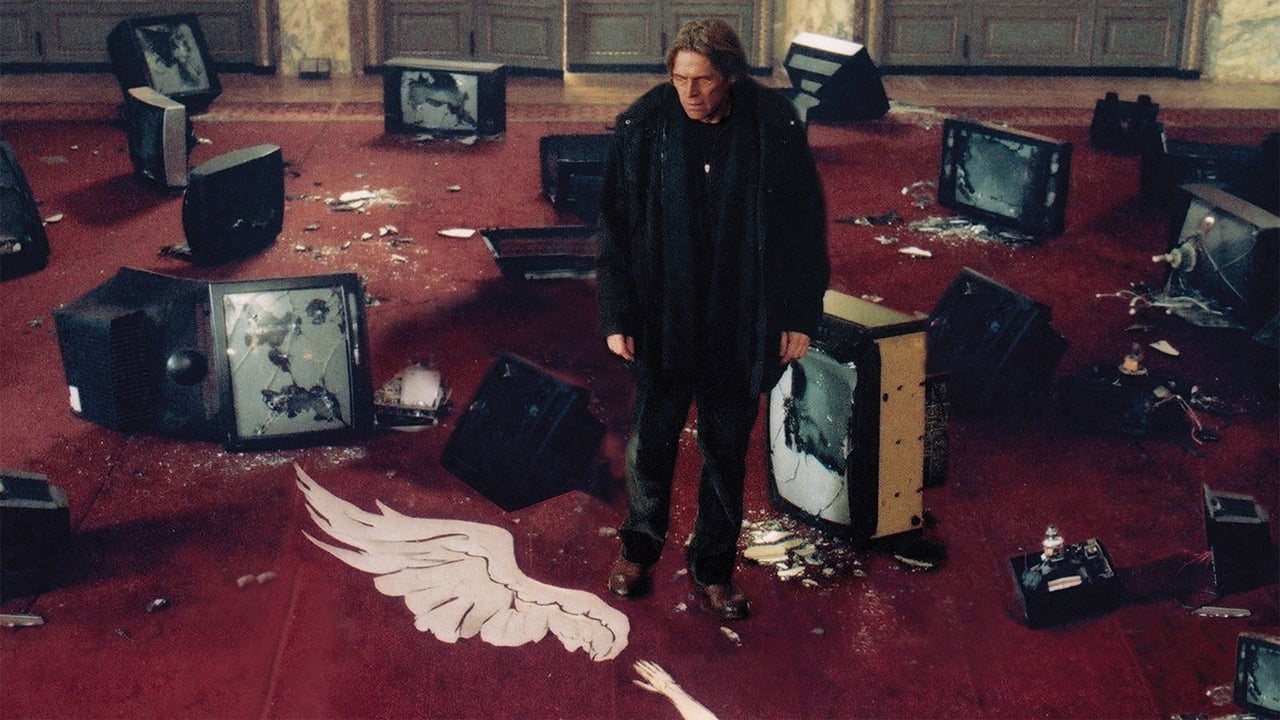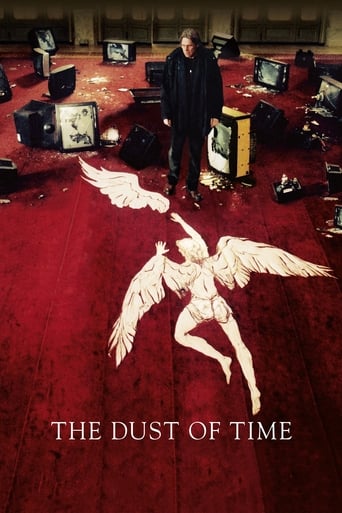

Really desperately disappointing film. Viewed it because Willem Davoe was involved. He appears in this as a rather diminutive man attempting to gain height and volume by displaying a vast growth of hair and always wearing a wide-shouldered, heavy-weather anorak. But I could tolerate this. The film has a plot which attempts a murky exploration of Totalitarianism and the predicament of those caught on the wrong side. It is of child-book, comic-book depth. But again I could put up with that. It is the quality of the direction and the acting which makes this film such an embarrassment. It was abysmal - so poor that I cannot understand why any Producer would have undertaken such a project. But there is one positive feature. Students of film can learn from this how ideological determination and money, combined, can be used to virtually convince the world that a 'work of art' has been produced.
... View MoreGreek screenwriter, producer and director Theodoros Angelopoulos' thirteenth feature film which he co-wrote with Italian screenwriter Tonino Guerra and the director's long time collaborator Petros Markaris, is the second part of an unofficial trilogy about modern Greece which was preceded by "The Weeping Meadow" (2004) and became his last film. It was produced by Theo Angelopoulos' frequent collaborator and wife Phoebe Economopoulos and is Greek, Italian, German and Russian co-production. It tells the story about a middle-aged American filmmaker of Jewish ancestry who is in the process of making a film about the story of his mother Eleni and his father Spyros at Cinecitta studios in Rome, Italy. While the producers of the film is worried about the shooting of the film, the director is concerned about finding his missing daughter.Narrated by Willem Dafoe and Irène Jacob and with a fragmented narrative structure that moves between the past and present and has them, this contemplative and imaginary epic about Greek history, family history, love, immigration, friendship, memories and time draws a pervasive portrayal of a destined relationship between two immigrants separated by time and circumstances. This quietly paced, character-driven and extensive journey which spans over fifty years from the mid-19th century to the beginning of the 20th century, depicts a significant love story, is precisely and distinctly directed by Theodoros Angelopoulos (1935-2012) and finely photographed by cinematographer Andreas Sinanos who also worked as the director of photography on the more stylistically prominent first segment of the trilogy.Shot in Russia, Rome in Italy, Cologne and Berlin in Germany, Athens in Greece and Kazakhstan, this subtle continuation of the story about Eleni and Spyros contains some memorable scenes, poetic images, artful and naturalistic milieu depictions and Greek composer and long-time collaborator of the filmmaker, Eleni Karaindrou's distinct score which reinforces this story within a story's poignant atmosphere. The international cast primarily consisting of American actor Willem Dafoe, Swiss actress Irène Jacob, German actor Bruno Ganz, German actress Christiane Paul and French actor Michel Piccoli delivers affective acting performances in this somewhat elegiac, at times humorous, humane and moving historic drama from one of Greece's most reverent and important filmmakers, which is seen from varied points of view.
... View MoreLike all of this great director's challenging work, I have a feeling this will improve with repeated viewings, as the sometimes disparate story stands make their connections more clear. On first look I found this full of thrilling moments and beautiful images (as one comes to take for granted with Angelopoulos), as well as a terrific, fun and heartbreaking performance by Bruno Ganz. However, I also found myself more lost than usual, even being used to Angelopoulos' complex, time, place and style shifting style. At the end of the day I felt unsure how it all added up, or even that the pieces really did all fit. Not unlike an earlier poster I felt a bit like I was watching someone else trying to do a film in Angelopoulos' style, and not quitepulling it off. That's perhaps a bit harsh. but there's some truth in it. It felt less sure handed than I'm used to. Character motivations and story choices felt forced or distractingly hard to buy. Even when Angelopoulos' earlier films confused me the viewer, I always felt strongly that the film-maker was never confused, he knew just how and why the pieces fit together, intellectually, thematically and emotionally. This time I wasn't quite as sure.
... View MoreMaster of broken love stories, Theo Angelopoulos, presents us the story of the last 60 years, the struggle between the absoluteness of love and the sadness of life.Three generations move from one place to another like leaves in the winds of immense political changes while we witness the parallels between their personal lives and those social changes in lyrical imagery.The two different paths taken by lovers who have fled Greece after the defeat of the Greek leftists by the American and British led Royalist army forms the basis of the film. Spyros goes to the US and Eleni to the Soviet Union. Spryos' attempt to take Eleni out of the Soviet Union ends dramatically. Eleni is sent to Siberia and Sypros to jail. They are then separated for decades but finally get together in the US. Their love child has become a movie director whose sole purpose in life is his career in the West while their granddaughter has to live the teenage life of divorced parents, lost in a life with no purpose. These social changes accompany political changes, somehow West starts resembling East. Siberian gulag security has now become Western airport security while the Russian secret police did turn into Berlin police. On this gloomy background Angelopoulos is not too pessimistic, there is a glimmer of hope, the only generation that can save the Gen Xers from their selfish Baby boomer parents are their grandparents. Overall, a wonderful movie by one the greatest directors of our time, not only packed with strong historic and political content but also beautiful poetry with many dramatic scenes, one especially standing out. And while Piccoli is good, Bruno Ganz offers a great performance.
... View More